Trailer trucks, also known as tractor-trailers or semi-trucks, play a vital role in the transportation industry, moving goods across long distances efficiently. However, due to their size, weight, and complex nature, operating trailer trucks requires careful attention to safety. The safety of drivers, other road users, and the cargo being transported is of utmost importance. In this article, we will discuss essential safety tips for trailer truck drivers and operators to ensure a secure and incident-free operation.
- Pre-Trip Inspection: Performing a thorough pre-trip inspection is crucial before every journey. Check the tires for proper inflation, tread wear, and signs of damage. Inspect the brakes, ensuring they are in good working condition and free from any leaks or abnormalities. Examine the lights, including headlights, taillights, and turn signals, to ensure they are functioning correctly. Verify that all coupling mechanisms, such as the fifth wheel and kingpin, are properly secured. Conducting a comprehensive inspection helps identify any potential issues before hitting the road.
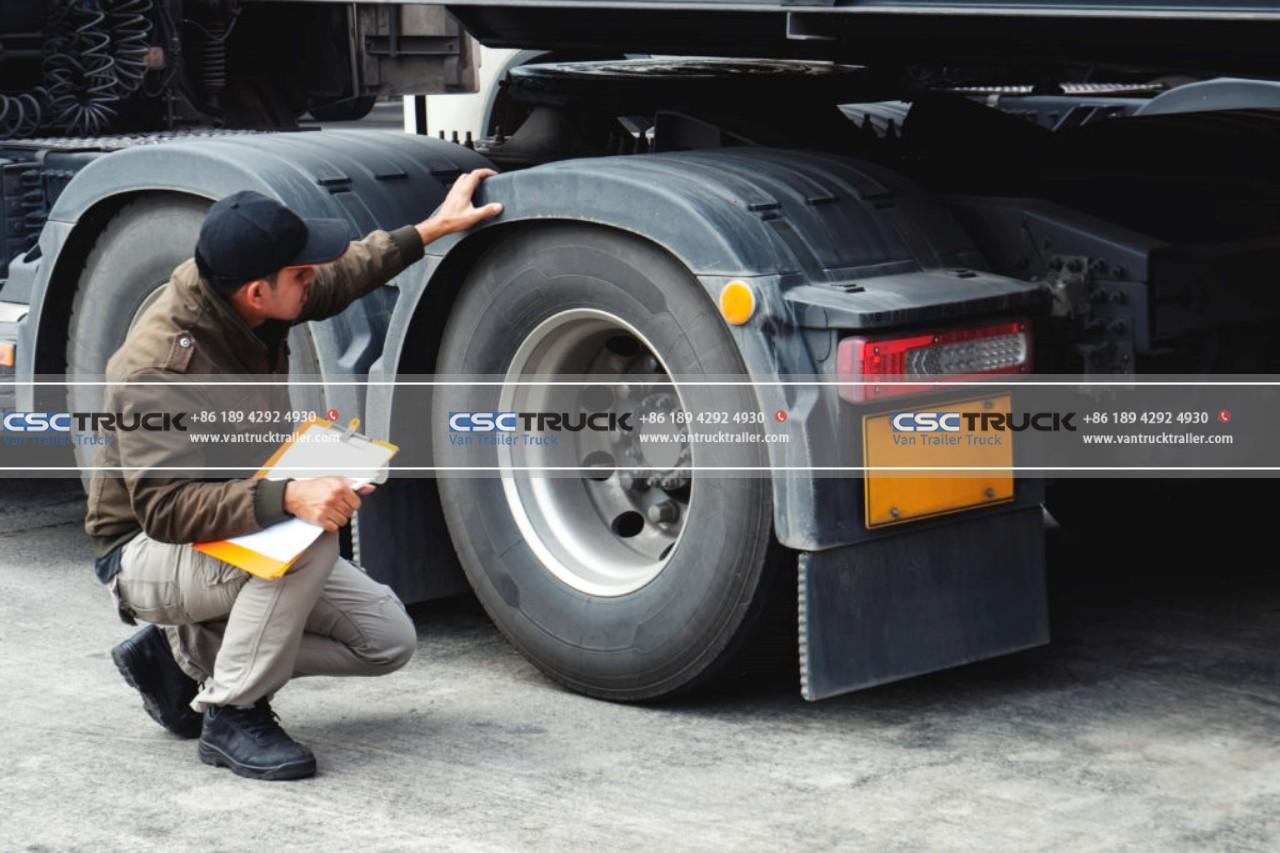
- Proper Loading and Weight Distribution: Maintaining proper loading and weight distribution is essential for trailer truck stability and handling. Follow the recommended loading procedures provided by the manufacturer and adhere to weight limits set by regulatory authorities. Distribute the load evenly throughout the trailer, placing heavier items closer to the trailer’s center of gravity. Improper loading or an unbalanced trailer can lead to handling problems, increased risk of rollovers, and compromised braking performance.
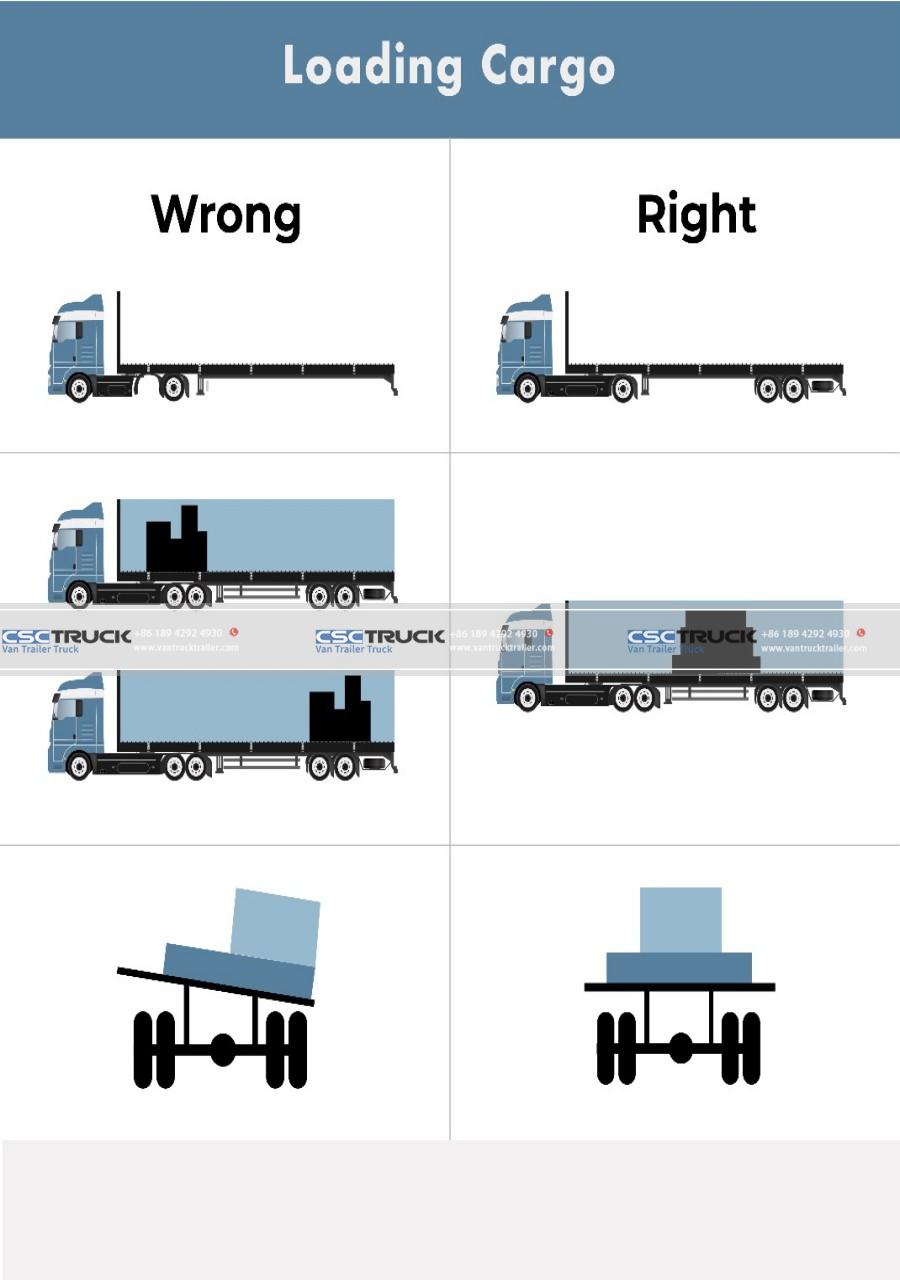
- Safe Driving Techniques: Trailer truck drivers must adopt safe driving techniques to minimize risks on the road. Maintain a safe following distance to allow ample time to react to sudden changes in traffic. Use turn signals in advance to communicate intentions to other drivers. Stay vigilant, constantly scanning the road ahead and checking blind spots. Avoid aggressive driving behaviors, such as tailgating or sudden lane changes, as these can lead to accidents.

- Weather and Road Conditions: Trailer truck drivers must be aware of the impact of weather and road conditions on their vehicle’s handling. Reduce speed and increase following distance when driving in adverse weather, such as rain, snow, or fog. Be cautious on slippery surfaces, and avoid sudden braking or acceleration to prevent skidding or jackknifing. Stay informed about road conditions, construction zones, and any potential hazards along the route to adjust driving strategies accordingly.
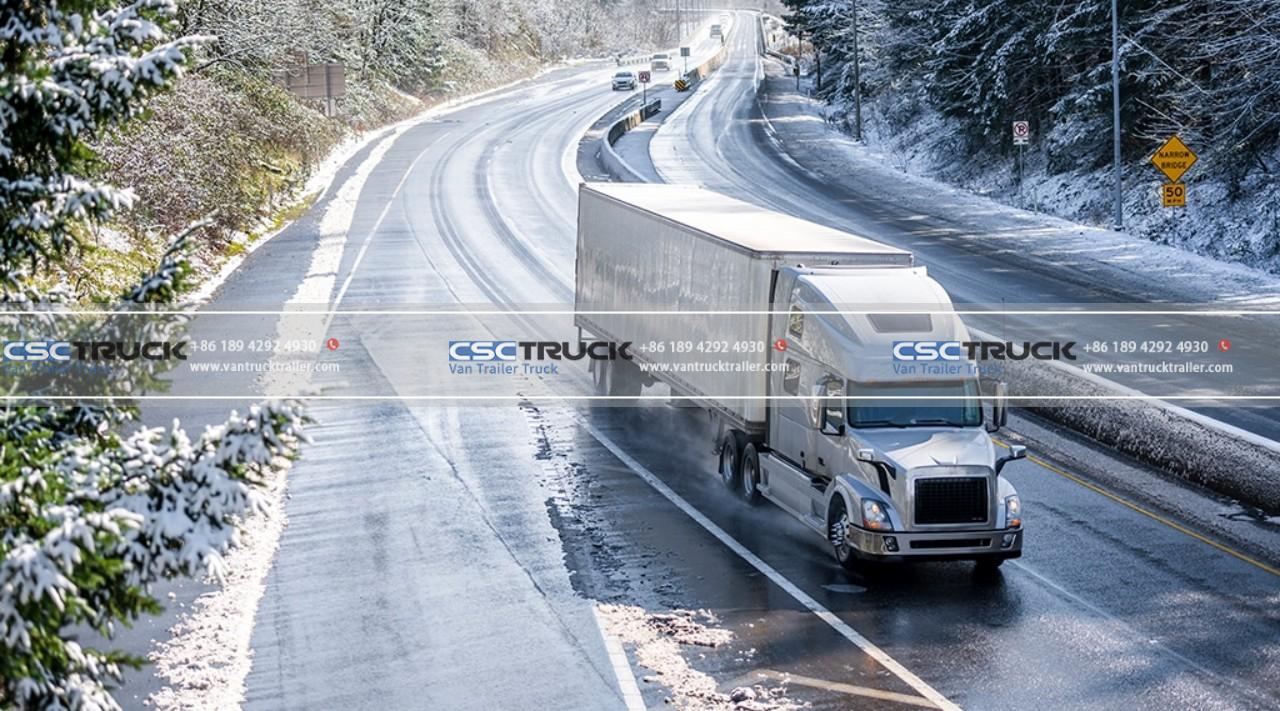
- Fatigue Management: Driver fatigue is a significant concern in the transportation industry and can impair judgment and reaction time. Adhere to regulations regarding maximum driving hours and mandatory rest periods. Take regular breaks and use them to rest, stretch, and rejuvenate. Ensure you get enough sleep before each trip to be alert and focused behind the wheel. Recognize the signs of fatigue, such as yawning, heavy eyelids, or difficulty maintaining lane position, and take immediate action to address them.

- Defensive Driving: Practicing defensive driving techniques is crucial to minimize risks and anticipate potential hazards. Be aware of surrounding vehicles and anticipate their actions. Maintain a safe distance from other vehicles to allow for sudden braking or evasive maneuvers if needed. Stay vigilant for pedestrians, cyclists, or animals near the road. Always expect the unexpected and be prepared to react accordingly.
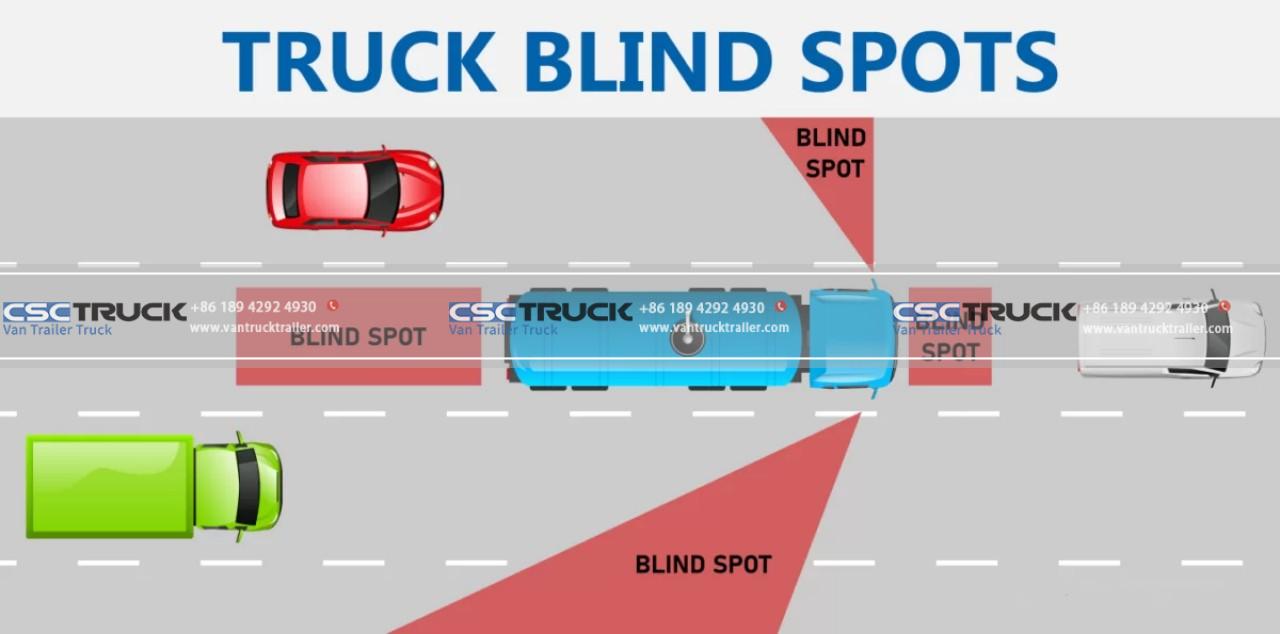
- Regular Maintenance and Inspections: Regular maintenance and inspections are vital to keeping trailer trucks in optimal condition. Follow the manufacturer’s recommended maintenance schedule and address any issues promptly. Regularly inspect the trailer’s braking system, suspension components, lights, and tires to ensure they are in good working order. Proactive maintenance reduces the risk of breakdowns or malfunctions on the road, minimizing the potential for accidents.

- Communication and Collaboration: Effective communication and collaboration are essential for trailer truck safety. Maintain clear lines of communication with dispatchers, fellow drivers, and other road users. Use two-way radios or hands-free devices to communicate important information or hazards. Follow traffic regulations and be courteous to other drivers, signaling intentions and giving ample space when changing lanes or merging. Be aware of blind spots and use mirrors effectively. Cooperation with other road users fosters a safer driving environment for everyone.
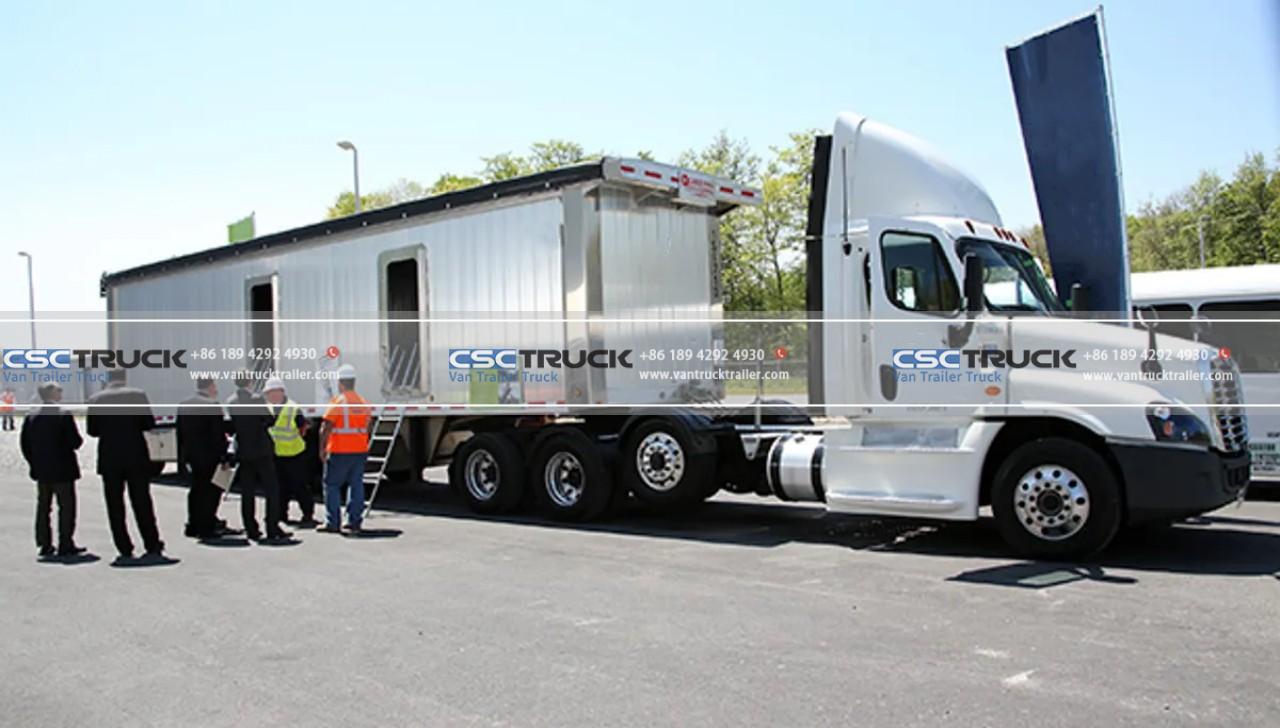
- Emergency Preparedness: Trailer truck drivers should be prepared for emergencies on the road. Carry essential emergency equipment, including a fire extinguisher, reflective triangles, a first aid kit, and a spare tire. Familiarize yourself with emergency procedures and know how to respond to incidents such as tire blowouts, brake failures, or hazardous material leaks. Stay calm and alert, and contact emergency services when necessary.

- Continuous Education and Training: To stay updated on best practices and regulations, trailer truck drivers and operators should engage in continuous education and training. Attend safety workshops, seminars, or webinars to enhance knowledge and skills. Stay informed about changes in industry regulations, road safety initiatives, and technological advancements that can improve safety. Regular training reinforces safe driving habits and ensures compliance with evolving standards.
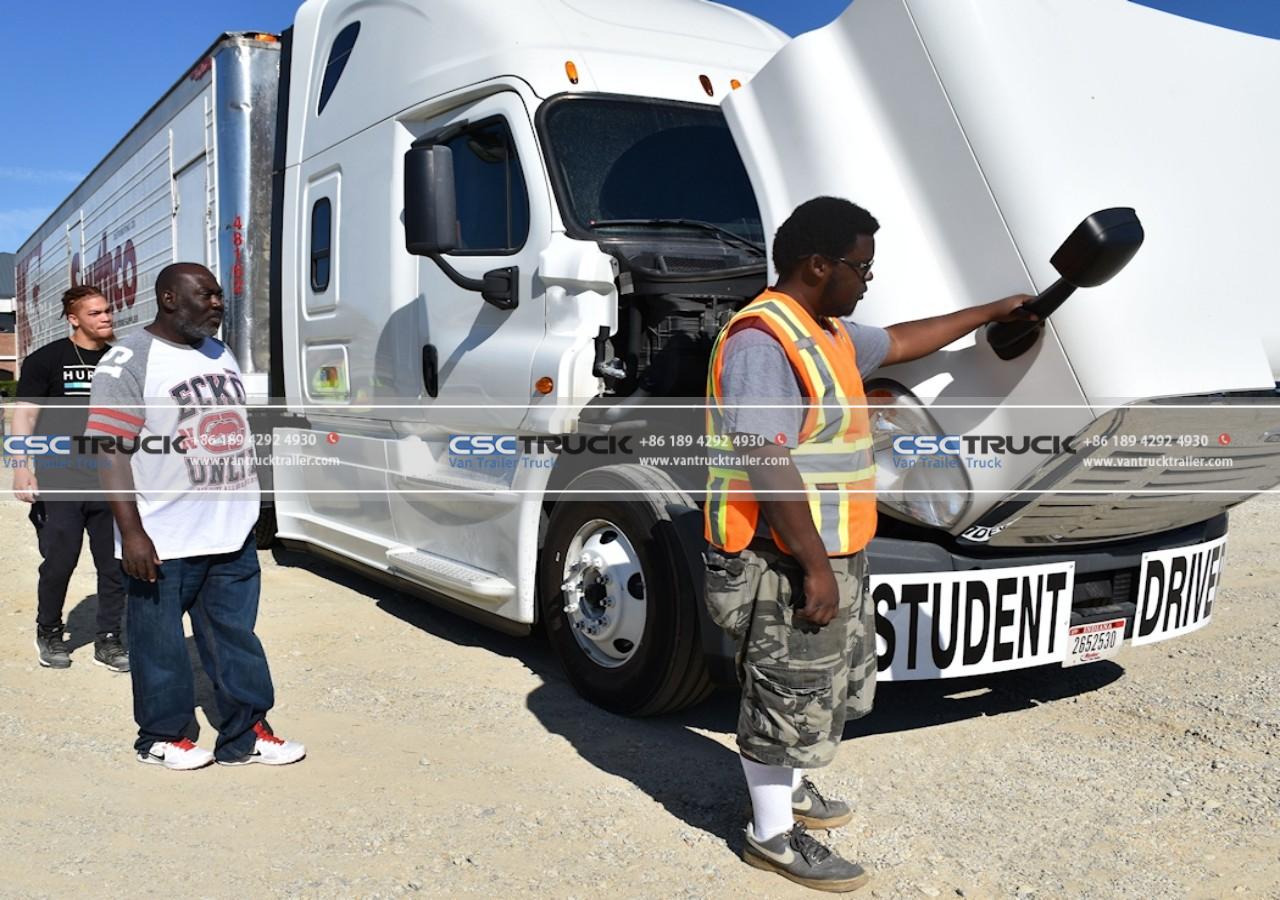
Remember, trailer truck safety is a shared responsibility among drivers, operators, and the entire transportation industry. By prioritizing safety, adhering to best practices, and staying vigilant on the road, trailer truck operators can reduce the risk of accidents and ensure the secure transportation of goods significantly.
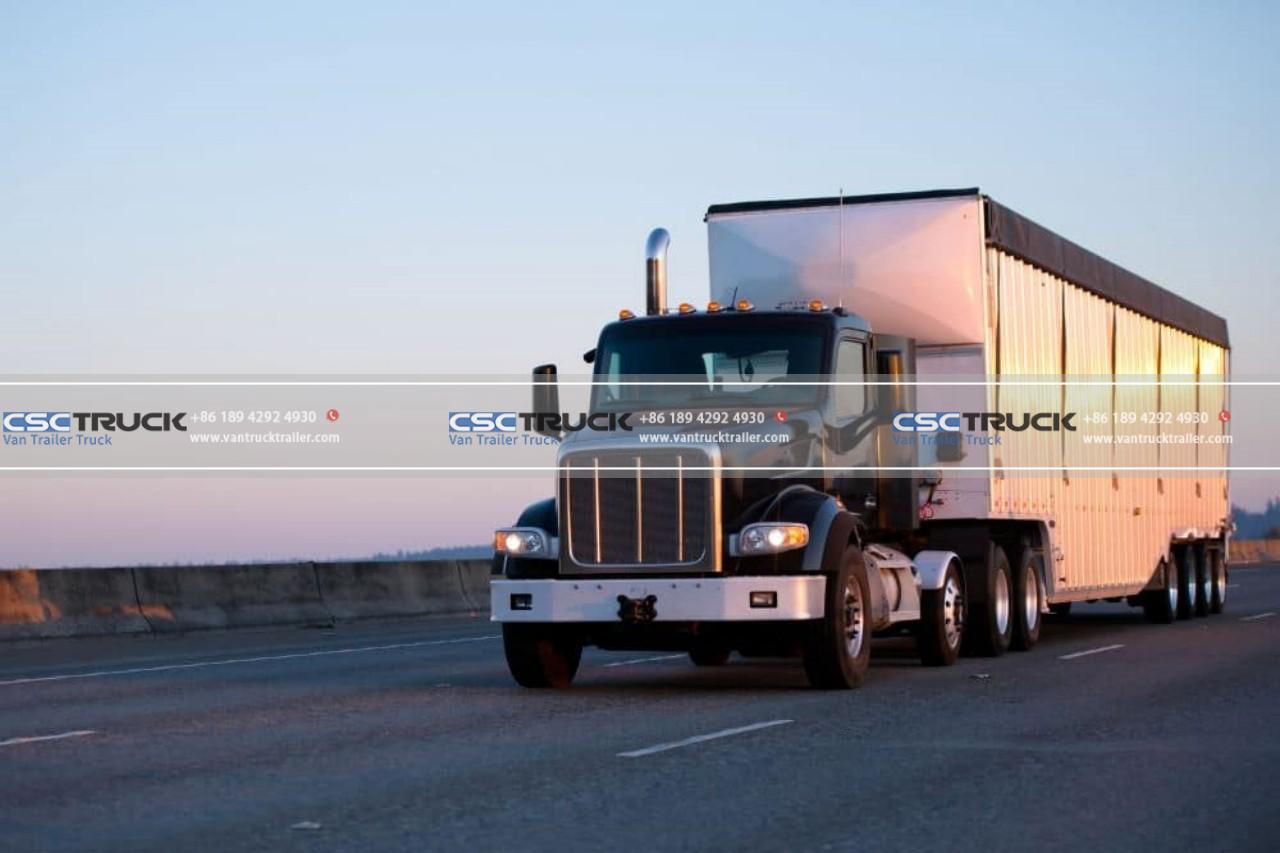
In conclusion, trailer truck safety is paramount for the well-being of drivers, other road users, and the successful operation of businesses in the transportation industry. By following these essential safety tips, including pre-trip inspections, proper loading, safe driving techniques, managing fatigue, practicing defensive driving, regular maintenance, effective communication, emergency preparedness, and continuous education, trailer truck drivers and operators can mitigate risks and promote a culture of safety. Embracing these practices not only protects lives and property but also contributes to the reputation and success of the transportation industry as a whole.


